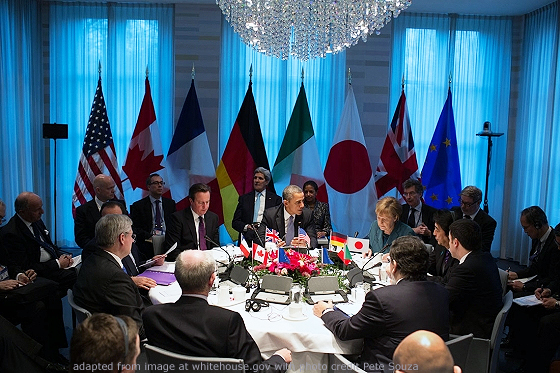Interfax: Russian foreign policy expert says relations with West at new low [Fyodor Lukyanov]

(Interfax – March 26, 2018)
Relations between Russia and the West have reached an unprecedented crisis, according to the head of an influential Russian foreign affairs think-tank.
Fyodor Lukyanov, chairman of the presidium of the Council for Foreign and Defence Policy, was commenting on the expulsion of diplomats from EU countries and the USA in response to the Skripal poisoning.
“Relations between Russia and the West have not simply reached an impasse, an unprecedented situation has arisen. For the first time, we are encountering the phenomenon of a multilateral diplomatic war, when countries are escalating tensions in relations with an important partner not because of a conflict of their own with it, but in submitting to a bloc discipline. Things like this only happened before in a situation leading up to a war or in a war situation itself, when the obligations of an ally dictate personal conduct,” Lukyanov told Intefax on 26 March.
“It is clear what Russia’s response will be – in each case it will be symmetrical, and this means, at minimum, in the immediate future, the probable disfunction of even the basic mechanisms of interaction not with specific countries, but with a whole bloc of states,” he said.
Interfax further quoted Lukyanov as saying that “we are experiencing the most critical moment in relations between Russia and the collective West since the 1980s. Even the Ukraine crisis of 2014 and the events in Crimea did not lead to steps likes this, like those that are being undertaken now.”
He added that given the complete lack of clarity over the Skripal affair “such tough steps that are so destructive for relations appear surprising”.
According to Interfax, Lukyanov stressed that the current situation represented a crisis in diplomacy as a whole. “This sphere of activity is intended so that even in the most critical moments communication and channels of contact are preserved – direct or at least through third countries enjoying the trust of both parties. What is happening today resembles the denial of this function of diplomacy,” he explained.
“This is reflected in the language of public interaction which would have previous generations of workers on the diplomatic front falling down in a faint, and what is worse, in the disappearance of non-public forms of serious communication,” Lukyanov said.
He said that the situation was complicated by the internal problems of the countries concerned and by their efforts to adapt to a fundamentally shifting external landscape, Interfax said.
“This applies both to Russia, where a very important new political cycle is beginning, but is especially noticeable in the USA and the EU (Great Britain first and foremost). As a result, foreign policy actions and their rationale are to a large degree dictated by the internal agenda, which makes the atmosphere of conflict even more unpredictable and hard to control,” Lukyanov was quoted as saying by the news agency.
[featured image is file photo, not directly related to article subject matter]
